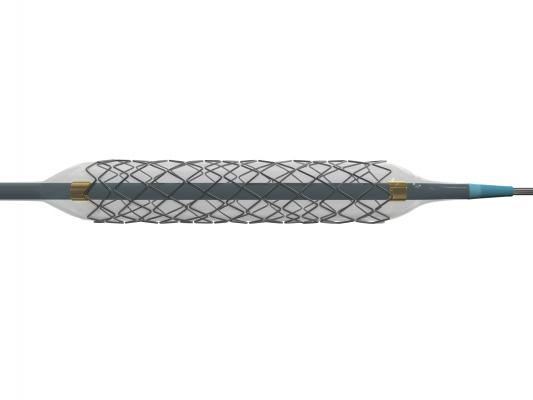
May 30, 2012 - According to study results to be featured in the late-breaking clinical trials session at the American Association of Clinical Endocrinologists (AACE) 21st Annual Scientific and Clinical Congress in Philadelphia, the Resolute drug-eluting stent (DES) from Medtronic Inc. yields strong performance in coronary artery disease (CAD) patients both with and without diabetes through two years of follow-up.
The Resolute Integrity DES was approved by the U.S. Food and Drug Administration (FDA) in February 2012 with a first-of-its-kind indication for CAD patients who also have diabetes.
Research shows that people with diabetes have a two- to three-fold increased risk for CAD and two- to four-fold higher CAD morbidity and mortality rates. Historically it’s been difficult to treat CAD patients with diabetes because they tend to have smaller coronary arteries and persistently elevated blood-sugar levels, which can increase the rate of procedural complications and long-term safety risks. As a result, CAD patients with diabetes have commonly undergone open heart surgery, which is more invasive and requires longer hospital stays and recovery time compared with stent procedures.
Within the RESOLUTE clinical program, roughly 30 percent of the patients had diabetes –– a proportion that mirrors current clinical practice. The late-breaking diabetes analysis will compare the clinical outcomes associated with the Resolute DES in 878 standard risk diabetes patients to 1,903 patients without diabetes enrolled in the clinical program.
The analysis will show consistently low event rates out to two years for both groups, despite the higher-risk nature of the diabetes patient population. At two years of follow-up, rates of target lesion failure (TLF) –– defined as cardiac death, target vessel myocardial infarction (heart attack due to a blockage in the stented vessel) and target lesion revascularization (a repeat procedure) –– are 7.1 percent for the patients without diabetes and 9.6 percent for patients with diabetes.
“Clinically-validated and minimally invasive treatment options for patients with both coronary artery disease and diabetes has represented a significant unmet clinical need for the diabetes community for quite some time,” said Scott W. Lee, M.D., clinical professor of medicine at Loma Linda University Medical Center near Los Angeles and medical director of global clinical research for Medtronic Diabetes in Northridge, Calif., who will present the results of the diabetes analysis. “Considering the challenges that are presented when treating diabetes patients with CAD, physicians can have confidence in the consistently low event rates in both patients with and without diabetes when using this device.”
The analysis will also feature additional outcomes for important safety measures, comparing insulin-dependent- and non-insulin-dependent diabetes patients to patients without diabetes. Rates are similar among non-insulin-dependent diabetes patients and patients without diabetes.
RESOLUTE Pooled Diabetes Analysis: Two-Year Outcomes
|
|
Insulin-Dependent |
Non-Insulin Dependent |
Patients Without N=1,903 |
|
TLR |
6.5% |
4.3% |
3.4% |
|
CD/TVMI |
8.6% |
3.9% |
4.1% |
|
Def/Prob ST |
0.80% |
0.16% |
0.43% |
*Endpoint Key
· TLR = target lesion revascularization (a repeat procedure to treat the same arterial segment)
· CD/TVMI = cardiac death/target vessel myocardial infarction
· Def/Prob ST = definite/probable stent thrombosis as defined by the Academic Research Consortium (ARC)
In collaboration with leading clinicians, researchers and scientists worldwide, Medtronic offers the broadest range of innovative medical technology for the interventional and surgical treatment of cardiovascular disease and cardiac arrhythmias.
For more information: www.medtronic.com


 January 05, 2026
January 05, 2026 









